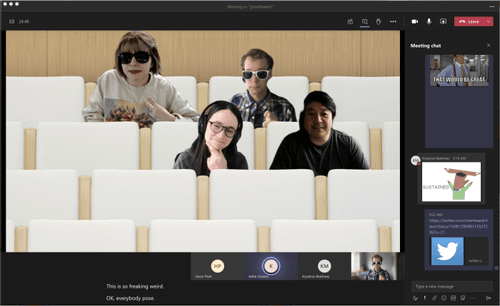5 cognitive biases to conquer in remote work
Curated from: zapier.com
Ideas, facts & insights covering these topics:
5 ideas
·728 reads
10
Explore the World's Best Ideas
Join today and uncover 100+ curated journeys from 50+ topics. Unlock access to our mobile app with extensive features.
Proximity/distance bias
Our brains want to feel in control, and physical proximity is one way we can have that control. So even though we have the tools to bridge any virtual distance, it's still a natural tendency to give preferential treatment to those in arm's reach, or at least a few desks down.
As a leader working to make all your team members develop and grow, you need to be careful that you aren't falling into this all-too-human trap, especially if you work in a hybrid environment where some workers are in the office and others aren't.
26
287 reads
Similarity bias
Similarity bias draws us to people who are like us, causing us to miss out on new, diverse relationships at work. It can even lead us to hire, promote, or offer more career development to people we can see ourselves in. Not good.
We need to go out of our way to feel connected to everyone, not just people like us. So, try to create shared experiences. It can be harder to create shared experiences in a remote environment, which means you need to be intentional about it.
26
139 reads
Anchoring bias
One trick our minds use to sift through everything thrown at us is to latch onto the first piece of information we get about a particular topic, decision, pattern.
When the American workforce went remote in March 2020, it was sudden—and not necessarily smooth. Even though systems have since been implemented to address all these things, lots of people still latch onto that anchor.
27
104 reads
Status quo bias
When we know what to expect, we know how to respond—and our brains like knowing how to respond. That's part of why shifting to remote work can be difficult: we've been working in person for years, decades in some cases, and it's hard for us to think of work in any other setting.
- Be aware of your preferences toward how you've done things in the past. Ask yourself:
- What's a process that made sense in person but may be holding you back?
- Who on your team would enjoy brainstorming ways to make remote work more fulfilling and productive?
- How can you involve your team in creating new remote traditions?
25
66 reads
Confirmation bias
This is the mental shortcut that results in us seeking out, preferring, and remembering things in a way that suits what we already believe. The term has been particularly popular over the past several years, in reference to how people choose their news sources.
If you or your team don't love remote work, this means you're less likely to spot remote work successes—and more likely to spot shortfalls that you believe arise from your new working environment. We need to get away from this tendency to use remote work as a scapegoat.
26
132 reads
IDEAS CURATED BY
Camille A.'s ideas are part of this journey:
Learn more about remotework with this collection
How to focus on the present moment
How to cultivate empathy and understanding towards others
How to set personal and professional goals
Related collections
Similar ideas
8 ideas
The Cognitive Biases Tricking Your Brain
theatlantic.com
13 ideas
Types of Cognitive Biases That Distort How You Think
verywellmind.com
11 ideas
Read & Learn
20x Faster
without
deepstash
with
deepstash
with
deepstash
Personalized microlearning
—
100+ Learning Journeys
—
Access to 200,000+ ideas
—
Access to the mobile app
—
Unlimited idea saving
—
—
Unlimited history
—
—
Unlimited listening to ideas
—
—
Downloading & offline access
—
—
Supercharge your mind with one idea per day
Enter your email and spend 1 minute every day to learn something new.
I agree to receive email updates

